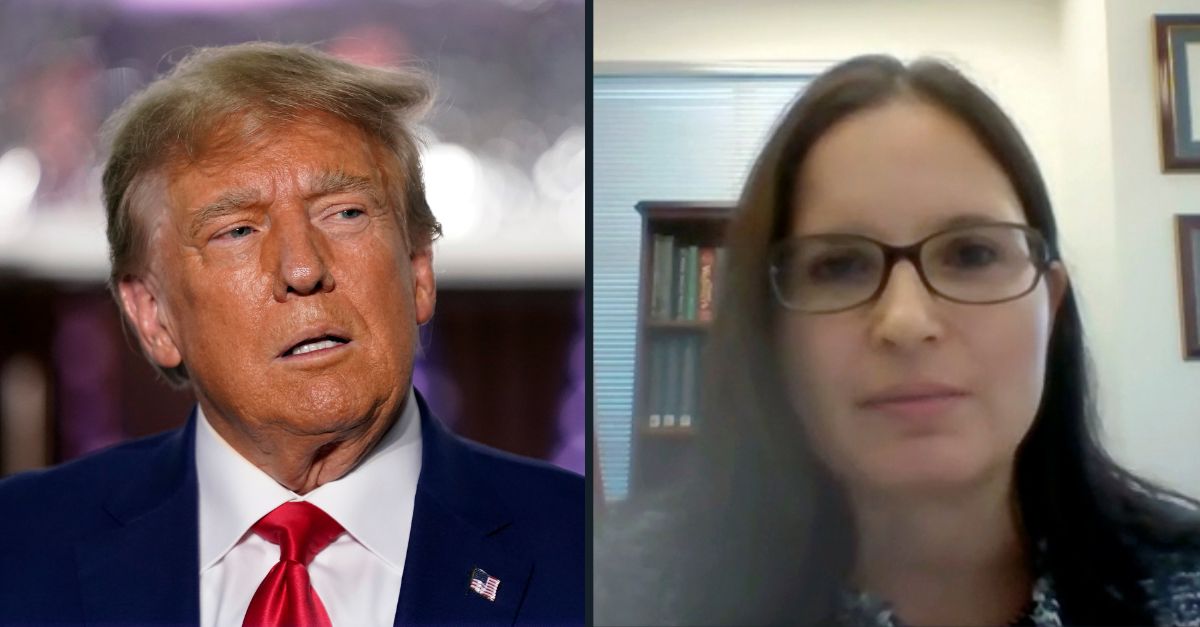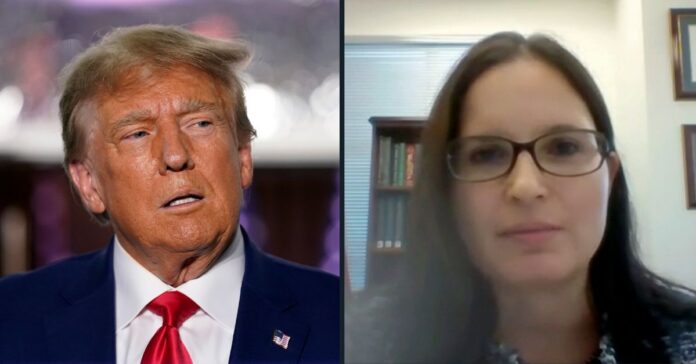
Former President Donald Trump (AP Photo/Andrew Harnik, File), U.S. District Judge Aileen M. Cannon (U.S. Senate via AP)
Attorneys for Donald Trump are asking the judge in the former president’s Mar-a-Lago prosecution to “put an end to” the special counsel’s “improper filings,” such as the one this week proposing that jury questionnaires be mailed out to probe “potential bias.”
Calling Jack Smith’s request an “effort to set deadlines outside of the Court’s November 10, 2023 schedule,” attorneys Todd Blanche and Christopher Kise asserted Wednesday that U.S. District Judge Aileen Cannon should “admonish the Special Counsel that future abuses that interrupt the defendants’ discovery review and defense preparation will not be tolerated.” The Trump team also said Smith “should be ordered to refrain from further motion practice outside the existing schedule absent truly compelling circumstances.”
The special counsel on Tuesday asked Judge Cannon to mail out juror questionnaires so that “potential bias” can be identified and rooted out early, narrowing the pool in advance of jury selection. Smith said that’s how courts have dealt with cases that have major pre-trial publicity concerns, like the cases of Dzhokhar Tsarnaev — the Boston Bomber — and Enron CEO Jeffrey Skilling.
The special counsel was aware of the judge’s November order that additional deadlines would be considered at a March 1 scheduling conference, but Smith insisted the questionnaires are “a necessary step” and will take considerable time to prepare and complete, so that process should get started as soon as possible. Because of that, the special counsel, mindful of the May 20 trial date, went to the judge and asked her to set a Feb. 2 deadline for prosecutors and the defense to “submit a joint proposed jury questionnaire.”
Trump lawyers Blanche and Kise were having none of it, even as they said Trump “does not dispute that a questionnaire may be appropriate to facilitate jury selection in connection with a trial where the defendants will exonerate themselves.”
Smith, the defense said (and Trump co-defendants Walt Nauta and Carlos De Oliveira agreed), thinks he’s playing baseball — and is closer to striking out.
“Apparently believing that the case is governed by baseball rules, the Office has taken another swing at maintaining a trial date that was set based on the Office’s misrepresentations regarding the timing and nature of discovery. The Court rejected the Office’s first attempt,” the opposition said, before calling Smith’s latest motion his second swing and a miss:
In this motion, based on its claimed “experience and research” and ignoring the Court’s prior use of the phrase “all other pre-trial deadlines,” the Office arrogantly purports to educate the Court about the logistics of jury selection in Your Honor’s District as a pretext for rushing toward an unjust trial. This motion is every bit as much a whiff, and therefore strike two.
Accusing Smith and his team of raising “entirely illusory” based solely on the “on the partisan talismanic significance” of keeping the May trial date in place, Trump’s lawyers said ordering up a jury questionnaire for early February would be “a waste of time” at this stage because the defense is waiting to see how Judge Cannon will rule on various issues:
The Court’s rulings on the defendants’ forthcoming motions to compel discovery, due January 16, 2024, will be integral to scheduling estimates that are an important part of the type of questionnaire the Special Counsel’s Office proposes.
The Court’s pretrial rulings will also be critical to additional key features of any proper jury questionnaire: a summary of the nature of the case and the defenses, and questions regarding aspects of the case that could reveal improper biases. Although we are still preparing our defense as we review and seek voluminous discovery—including, as noted, important as-of-yet unproduced materials—the defendants’ pretrial motions will attack central aspects of the Special Counsel’s case. For example, we will bring to light important issues regarding the timing of President Trump’s security clearances, the FBI’s illegal raid at Mar-a-Lago, unlawful disregard of President Trump’s attorney-client privilege, and other grand jury abuses, not to mention prosecutorial misconduct, selective prosecution, witness-advocate problems, improper and unconstitutional involvement in the investigation by the Biden Administration and the National Archives, related abuses of the Presidential Records Act, the lack of sensitivity of certain documents, and flagrant overclassification of other materials. That is to say nothing of the extensive CIPA litigation that will be necessary, and time consuming, before a fair trial can be conducted if one is necessary. If any of the pending charges survive these and other motions — and they should not—it will be incumbent on the Court and the remaining parties to administer jury selection procedures that are attentive to the particulars of the case and any remaining issues that may challenge potential jurors’ ability to be impartial. Any “joint” questionnaire proposed by February 2, 2024 could not possibly account for those details in an appropriate way, and would therefore be a waste of time.
In closing, the Trump team claimed the Special Counsel’s Office “is demonstrably not committed to a just outcome in these proceedings” and is only trying to use Cannon to advance their “political advocacy attacking the leading candidate in the 2024 presidential election in a key State and beyond.”
Read the opposition here.
Have a tip we should know? [email protected]

